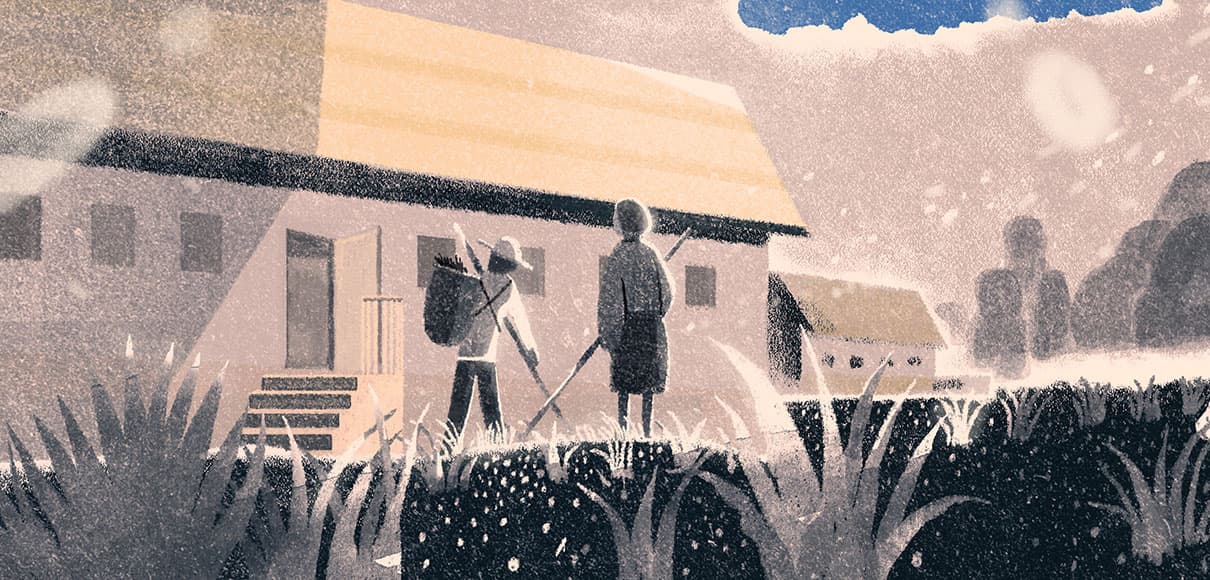This year, students across SPU’s campus read Julie Otsuka’s debut novel, When the Emperor Was Divine. The National Endowment for the Arts named the
book this year’s Big Read, which enables communities to come together to read a book and host a series of events around the book’s topics.
Seattle Pacific University was a recipient of a Big Read grant from the NEA along with Highline College and the King County Library System and Customized Tours.
Kris Mensonides Gritter, School of Education professor and director of the Big Read grant, spoke with Otsuka about her book, which shares the story of a family’s experience during World War II, when more than 110,000 Japanese Americans were sent to concentration camps across the United States.
The characters are nameless. Why did you make that choice?
After the attack on Pearl Harbor, every Japanese American on the West Coast was registered and assigned a number by the government. Some 110,000 people were reduced to numbers overnight.
My mother remembered her family’s number — 13611 — until the end of her life. It was written on the ID tag that hung from her neck as she boarded the train for the camps.
I like the idea of the reader opening the book to a story about a woman going for a walk and encountering a sign on the street. It’s a situation anyone can imagine themselves in. It’s not until several pages in that the race of the woman becomes clear. By this time, hopefully, the reader is hooked.
 It seems like the education in the camps was not of great quality and the paid jobs were especially menial. Do you think the lack of intellectual rigor at this time affected the Japanese American community over the long term?
It seems like the education in the camps was not of great quality and the paid jobs were especially menial. Do you think the lack of intellectual rigor at this time affected the Japanese American community over the long term?
An incredibly complex question. My answer is yes, but not necessarily in the ways you would expect. The quality of education was indeed poor: unaccredited teachers, overcrowded classrooms, a lack of heat, a shortage of textbooks and equipment.
Children responded in different ways. Some withdrew and remained bitter for the rest of their lives. Others formed long-lasting friendships. My mother, who was incarcerated as a young girl in Topaz, Utah, attended several camp reunions years later to reconnect with her childhood friends.
They planted vegetables on the camp farms — they knew how to work the soil, and the yields were high. There is value to working and feeling like you are contributing to your community. People tried to stay busy and make the best of things.
Some of the older students who were forced to drop out of college to “evacuate” were allowed to attend colleges on the East Coast and in the Midwest, where
there was far less anti-Japanese prejudice. Others returned to the West Coast after the war and had to help support their families. They never finished college.
The older Issei — first-generation Japanese immigrants in their 40s and 50s — suffered the most. Many were farmers who were doing quite well when the war broke out. By the early 1940s, Japanese Americans dominated the produce and floral markets in California. When they were incarcerated, they suffered tremendous financial losses. It was particularly demoralizing for the men, who were no longer able to provide for their families.
A lack of intellectual rigor was not their most pressing concern. Many were eager to take on camp jobs, no matter how menial or low the pay. They also planted
vegetables on the camp farms — they knew how to work the soil, and the yields were high. There is value to working and feeling like you are contributing to your community. People tried to stay busy and make the best of things.
For the farmers’ wives, who had worked side by side with their husbands in the fields for years, “camp” was the first time they had ever taken a “vacation.”
Some came from isolated family farms and had never socialized with other Japanese women. Many signed up for their first English classes. For them, camp was more intellectually stimulating than their previous lives of work, work, work.
After the war, the Issei had to start all over again. They had sold off their family farms and businesses before leaving for the camps. Most lost everything and
never made it back. But their children were resilient.
When my mother returned to California in 1945, she was terrified she wouldn’t be able to keep up with her classmates at Berkeley High School, but she did fine and went on to attend college at UC Berkeley. It was her mother, formerly the leisured wife of a businessman, who went to work cleaning houses to support the family and put her children through college. She worked as a maid for the next 30 years.
Could you tell us more about the book you are writing now?
It’s a novel about swimming and dementia titled The Swimmers. I just finished writing the last chapter. It’s different from anything I’ve written before, but, in an unexpected way, works well as a coda to my first two novels.
Illustrations by Lisk Feng




